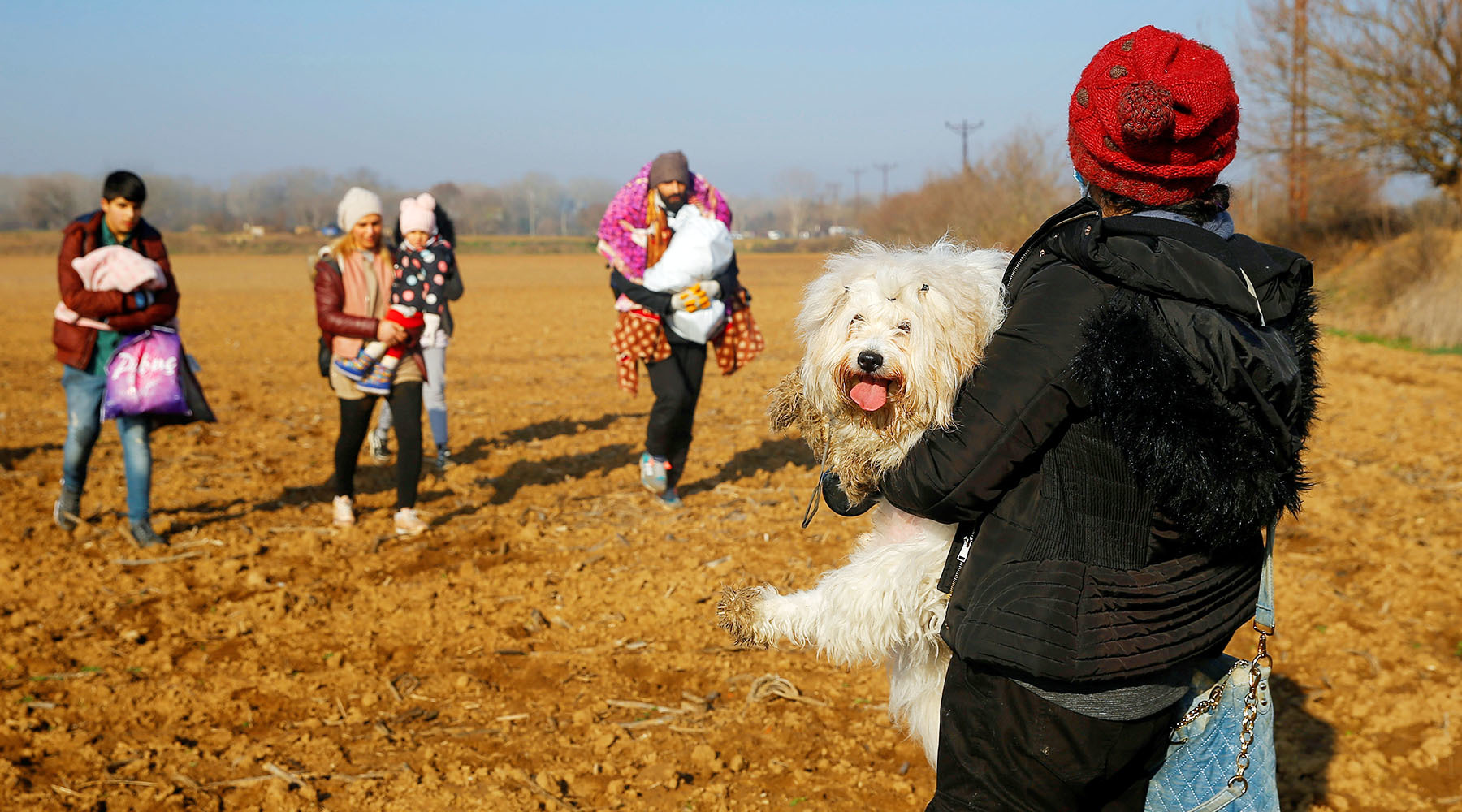A number of German politicians, in particular the Minister of Defense and the chairman of the Christian Democratic Union, Annegret Kramp-Karrenbauer, called on Western countries to “exert pressure” on Moscow and Damascus to resolve the situation in Syria. This was reported by the Sunday edition of the Frankfurter Allgemeine Sonntagszeitung.
“The European Union and the United States of America must work together to increase pressure on Assad and Putin to pave the way for political negotiations to end the terrible war in Syria. The terrible humanitarian situation in the SAR affects everyone, ”said Kramp-Karrenbauer.
In turn, the chairman of the Bundestag committee on foreign policy, Norbert Röttgen, believes that the West should think about the possibility of introducing additional sanctions against Russia. According to him, Moscow "does not follow any friendly calls from Europe."
“We must make it clear that we are ready for a tough diplomatic and economic game,” the German politician believes. According to Röttgen, such a position would be effective if the initiative came "from Germany and France together."
Note that on the eve of a telephone conversation between the presidents of Russia and France, Vladimir Putin and Emmanuel Macron. As the Kremlin reported, the interlocutors exchanged views on the Syrian issue "primarily in view of the sharp aggravation of tension in the Idlib zone."
Later, Western media reported that the French leader called on Moscow and Ankara to achieve a ceasefire in Syria, and also expressed the hope that Turkey will cooperate with the EU on the issue of migrants.
The Turkish authorities decided to open the border for refugees after the incident in Idlib, where 33 Turkish soldiers died as a result of shelling by Syrian government forces. The Russian Ministry of Defense indicated that the cause of the incident was the presence of the Turkish Armed Forces in the combat formations of the militants. According to the Turkish Ministry of Internal Affairs, as of 23:50 on February 29, more than 47 thousand people crossed the borders of the republic, heading to the EU.
“We have long said that we are not obliged to accept so many refugees. You promised us help, but you are not doing anything, and yesterday we opened our borders, ”Erdogan said.
- Reuters
- © Huseyin Aldemir
According to the agreements between the EU and Ankara in 2016, Turkey takes refugees to itself in exchange for financial assistance and liberalization of the visa regime with EU countries.
In addition, on Sunday, March 1, a telephone conversation took place between Russian Foreign Minister Sergei Lavrov and his colleague Mevlut Cavusoglu. They discussed preparations for a meeting between Putin and Erdogan, which is tentatively scheduled for March 5 or 6.
“Europe is afraid of a new stream of refugees”
According to German political scientist Alexander Rahr, Turkey requires solidarity and support from its NATO allies, but in the fall of 2019, these same countries criticized Ankara for the decision to launch Operation Source of Peace in Syria.
“The European Union wants to show solidarity with Turkey, because it is afraid of the full opening of borders, after which a lot of refugees will flood into Europe, not only from Syria, but also from all over the Middle East. There are millions of refugees on the territory of Turkey who are just waiting for the borders to open, to go further to Europe, ”the source said.
In turn, Boris Dolgov, a leading researcher at the Center for Arab and Islamic Studies at the Institute of Oriental Studies of the Russian Academy of Sciences, points out that the statements of German politicians were the result of pressure that Turkey exerted on the EU by its decision not to restrain the flow of refugees.
“How much will this work? Probably, it should be borne in mind that there are certain differences between Turkey and the EU. Ankara has been repeatedly criticized for anti-democratic measures in domestic politics. And here we must bear in mind the presence in Germany and other EU countries of a significant Kurdish diaspora, which opposes the actions of Turkey. This factor will also matter. Perhaps these problems between the Kurds and the Turks will be transferred to European countries. Therefore, this statement of the representatives of this wing of the German establishment will to some extent affect the policy of Germany, but with limitations, ”the expert explained in an interview with RT.

